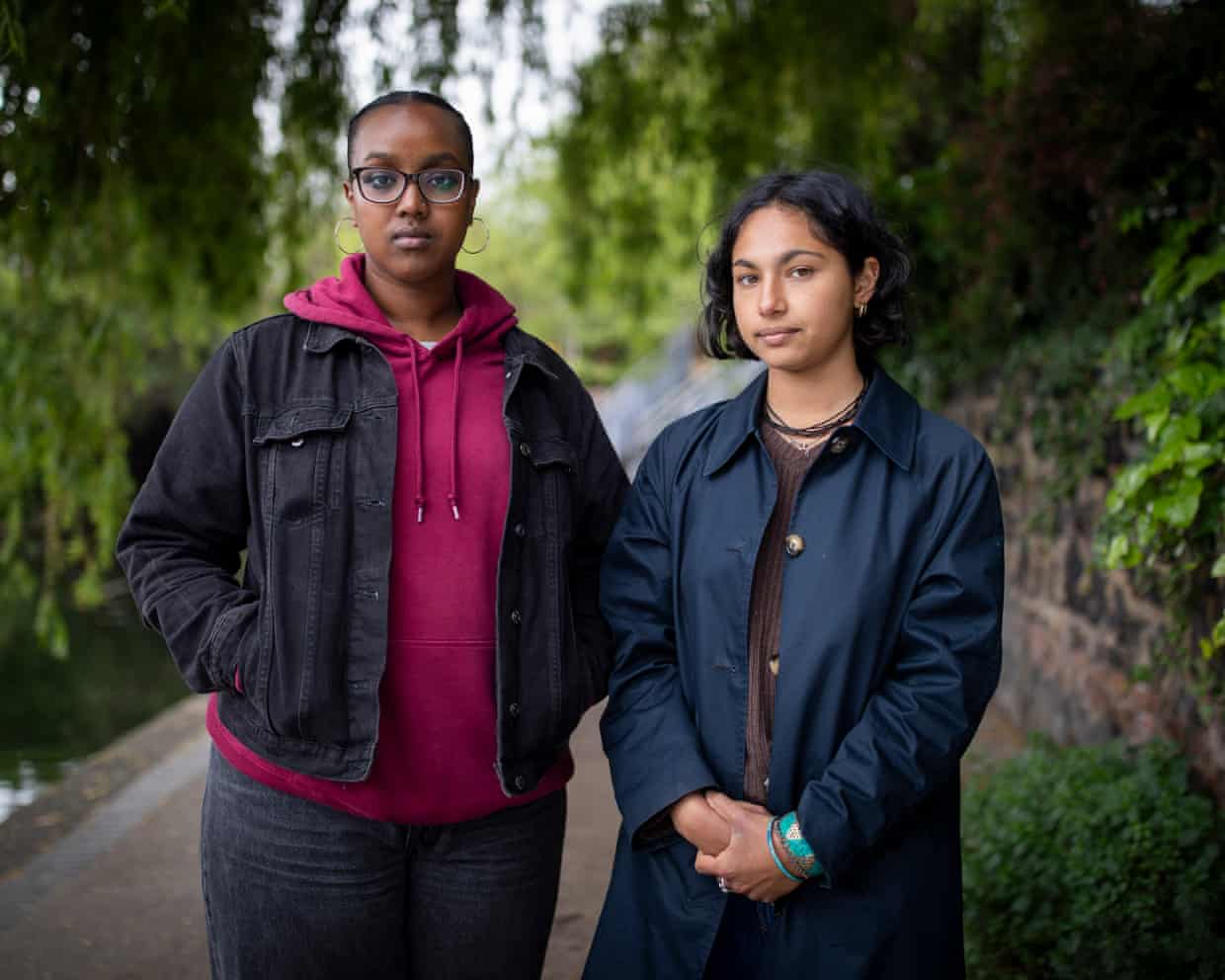When a group of six young women convened in central London to address the issues of climate change and the conflict in Gaza, the location was fittingly symbolic. They gathered in a Quaker meeting house, a venue steeped in a longstanding tradition of activism and advocacy for social equality. On their table sat fragrant jasmine tea, ginger biscuits, and an assortment of vegan cheese straws.
However, the enjoyable atmosphere of their discussion was abruptly shattered by events that triggered a different form of protest and raised critical questions regarding the actions of the UK’s largest and most controversial police organization.
As the youth advocates shared their thoughts on the 1963 Children’s March in Birmingham, Alabama, a sudden flash of blue lights disrupted the conversation. Moments later, approximately 30 officers from the Metropolitan Police, some equipped with stun guns, forcibly entered the heritage-listed building, apprehending the women inside.
Eighteen-year-old Zahra Ali, one of the attendees, spent 17 hours in a holding cell. Another individual faced a stifling situation, handcuffed behind her back and pressed against a wall in what she characterized as an hour-long ordeal. Officers confiscated their phones, and laptops were taken as part of the investigation.
The police operation, described as “intelligence-led,” aimed to apprehend members of the protest organization Youth Demand. The women were detained on allegations of engaging in a conspiracy to create a public nuisance, with five of them still under investigation.
Weeks later, this police action has drawn widespread condemnation from religious leaders, politicians, and activists alike. Many question the necessity of such an aggressive response, particularly within a sacred space.
“I was the last to be taken into custody,” recounted Ali. “I arrived at the station around 10 PM and waited two hours for processing. I was placed in a freezing cold cell for hours and denied the ability to make a personal call. I didn’t speak to my solicitor until he arrived in person.”
“We only saw the blue lights a split second before they stormed in. We were simply a group of young people discussing our government and the act of protesting, and they arrested us for that.”
“If they had just knocked, we would have let them in. They didn’t need to execute a raid on us—just six young women in a rented room that was publicly advertised. They could have joined us and listened; I see no conspiracy in that.”
This notion of conspiracy is particularly jarring for the young women involved. Their meeting was hardly clandestine—other activities, including a life-drawing class and a therapy session, were also occurring in the same venue, they assert.
“We promote our events via Instagram and distribute flyers. It’s a weekly welcome talk, and if the police had any genuine intelligence, they’d know it’s never that crowded to justify 30 officers showing up.”
Youth Demand, which includes activists from the Just Stop Oil movement, had announced plans online to enact frequent disruptions in London starting in April. Last month, the group staged various protests, including one during the London Marathon where two activists were arrested for throwing red powder paint on Tower Bridge.
The group, advocating for a trade embargo against Israel, had previously gained attention for staging a “dirty protest” at Prime Minister Rishi Sunak’s Yorkshire residence and spray-painting Labour Party headquarters.
For Lia-Anjali Lazarus, a 20-year-old UCL student studying politics and languages, the raid represented “a deeply distressing experience.” She expressed, “The raid and subsequent arrest felt profoundly violating. It left me feeling paranoid and anxious. When you’re treated like a criminal, it’s hard not to feel that way.”
The police seized her phone, laptop, diary, Oyster card, and French grammar book. “I told them it was my French grammar book, and the officer replied, ‘How can I confirm that? I don’t speak French.’”
Lazarus described the police’s excessive response as a form of “thought policing,” though such actions did not surprise her given past arrests of Just Stop Oil activists during a soup night at a community center last year.
Paul Parker, the recording clerk for Quakers in Britain, noted that there hadn’t been any arrests at a Quaker meeting house within living memory. Quakers is a term used to refer to members of the Religious Society of Friends.
Mal Woolford, an elder from the Westminster Quaker Meeting present at the gathering, observed that the meeting seemed akin to an unremarkable assembly of drama students. Woolford criticized the police response as “wildly heavy-handed” and recalled questioning the investigating officer during the arrests. “I was asking: ‘Would you have acted this way toward a church? What led to your decision?’ To which the response appeared to indicate they anticipated no resistance.”
Woolford remarked that the police seemed intent on creating a “surprise element.” “To them, it was about catching someone in the act. But how do you catch individuals discussing potential actions, which teeters on the line of thought crimes? We’re venturing into ‘Minority Report’ territory,” he noted.
He recounted how the investigator claimed, “We have intelligence about this meeting and its potential for criminality.” He reflected, wondering what “intelligence” they truly possessed and later realized it was simply information publicly available on the Youth Demand website—not actionable intelligence at all.
Green party co-leader Carla Denyer, who identifies as a nontheist Quaker, participated in a Quaker vigil outside New Scotland Yard in response to the incident last month. The MP for Bristol Central stated, “This isn’t merely about a single incident; it reflects a growing crackdown on the right to peaceful protest in this nation. The previous Conservative government enacted laws restricting peaceful assembly, and thus far, the current Labour government hasn’t promised any repeal.”
Jenny Jones, a Green party peer also present at the vigil, condemned the Met’s conduct as “completely unacceptable.”
Lady Jones has contacted Metropolitan police commissioner Sir Mark Rowley to inquire about the incident. “Who made the decision to forcefully enter a peaceful community? Was this decision made at a high level, or somewhere lower down in the hierarchy?” she questioned. “This is crucial, as it will reveal how poorly the police grasp the related legislation.”
A spokesperson from the Met police indicated that five of the women were released on bail pending further inquiries, while one would not face further charges. Additionally, six other individuals were arrested on similar allegations on March 28 and subsequently bailed.
The spokesperson emphasized, “We fully understand the significance of the right to protest; however, we are obliged to act when activities shift from protest to severe disruption or criminal activity.
“This operation was aimed at members of Youth Demand, who were conspiring to ‘shut down’ London, including blocking roadways, which would severely inconvenience the public going about their daily routines.”
Denyer, who was introduced to Quakerism while studying at Durham University, remarked that the incident sets a “very alarming” precedent.
“The government has been discussing providing legal protection to faith groups and their places of worship, yet the actions of the police contradicted that entirely,” she stated. “As many who are aware of British and Quaker history have noted, when the government targets Quakers, it signals a troubling time for all.”

